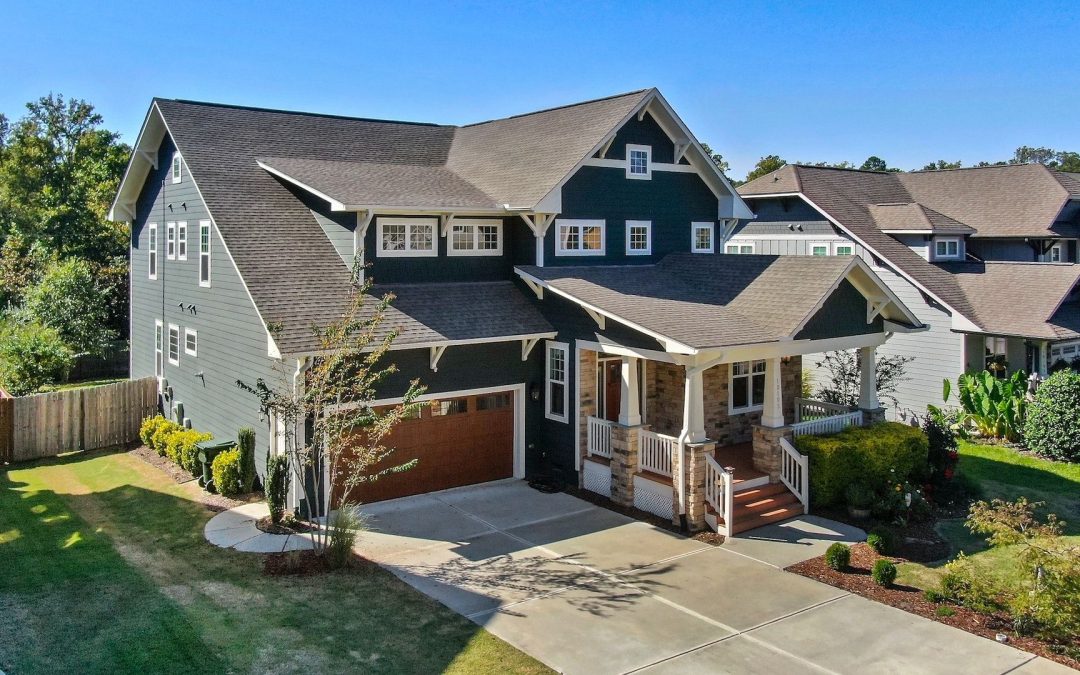Let’s talk about new builds for a minute. Not fully-custom homes but just about everything else. We’re currently seeing a shift in the market, specifically with new builds. Here’s what you need to know to qualify for your new build!
Buying a new build home is an exciting prospect, but the process can be overwhelming, especially when it comes to securing a mortgage. Some folks in select markets who purchased a new build home two years ago have seen their homes drop in value. Even worse, others are no longer able to qualify for their new home due to the significant interest rate increases we’ve seen.
Assuming you have a longer rate hold period or still qualify at an increased rate, you’ll still want to keep an eye on your builder’s website to see what similar units are selling for today. It’s crucial to understand the ins and outs of qualifying for a mortgage and the importance of consulting your local mortgage agent. Let’s explore some of the essentials!
Appraisals
Appraisals on new builds are the norm. Lenders use an appraisal to ensure that the property is complete (97% to be exact) and to establish its current value. Since markets change, lenders need to ensure the value you purchased the property at has not decreased (an increase is fine, of course). One of the main issues with appraising a new build is the lack of available comparables.
If you’re buying a new home, you need to compare it to something similar. Since they’re all new builds and haven’t closed yet, lenders don’t have the same apple-to-apple comparison. enders need to compare apples to apples so to speak. Appraisers can get creative and consider similar finished homes in the area in combination with what the builders are selling other units for currently in these cases.
Finance Qualifications
First off, builders don’t do finance. They get you to ensure your financing will meet their purchasing requirements. You have to do your due diligence to ensure you account for risks like market shifts, rate increases, etc. Remember, we can only qualify you based on today’s numbers. That means your income today, credit today, and the home price today… we can’t (necessarily) predict the future!
Rate Holds
It’s important to talk to mortgage experts who can help create a plan and backup plan for you in case these types of things happen. An integral part of that plan is your rate hold period. Some lenders will give you an interest rate and lock it in for a certain length of time. During that period, whether rates go up or down, yours remains the same. Keep in mind, you haven’t purchased or closed the deal yet, the rate is just held for you.
Many builders will have a relationship with one of the bigger banks to allow for “longer than normal” rate holds to help clients ensure they qualify and close the deal when the home is complete. Your average rate hold is between 90 to 120 days, whereas a new build rate hold period through a builder partner could be one to two years!
Pre-approvals
Since you’re usually getting pre-approved (or actual approval) for the future with new builds, there are a couple of different scenarios that can happen. Some major banks will do a full approval (including the standard credit check, document collection, etc.), put it away, and then just fund the deal when ready. This could be six months or even a year or two down the road.
This first option is advantageous assuming you qualify today for the home you want and that rates don’t drop substantially. If your financial situation changes (e.g. employment, debt load, etc.) it won’t affect your deal. The risk with this situation is the rate you get historically has been higher than what the market is offering at the time of closing. Currently, that’s not the case but, if you wanted to get the lower rate that may be available, you would have to re-qualify.
The other scenario is almost the opposite. If you’re not where you need to be yet, you may be able to get pre-approved with the caveat that your income increases or your debt load decreases for example. In this case, the risk is that you don’t accomplish those necessary changes and don’t qualify for the mortgage you need, putting you at risk of not closing the deal and the consequences that may come with that.
Deposits
Every real estate transaction requires some type of deposit. The main difference with new builds is that the amount will be at the builder’s request. It’s typical to see an amount equivalent to 5-10% but can be different. Deposits are also a form of security for the builder if you’re not able to close on the deal. Remember that the deposits are part of your down payment and there are specified timelines when this is due.
Owner-Occupied or Investment?
A new build home is a product that is for sale and therefore subject to HST. Your new build home will have the HST built into its purchase price. There are sometimes rebates that can be applied for owner-occupied homes (although these usually go to builders). If you’re purchasing the property as an investment, it’s your responsibility to pay the HST and apply for the rebate.
This means, not only do you need the down payment and closing costs, you need the full amount of HST since it’s a closing requirement. Remember, the mortgage approval process is set up to disclose the fact that it’s not owner-occupied, so you can’t skip this step. Not to mention that the CRA would certainly take offence!
Navigating the mortgage process, especially for a new build home, can be complex. This is where we come in! Contact the Kyle Miller Mortgage Agent team today for expert guidance.


Recent Comments